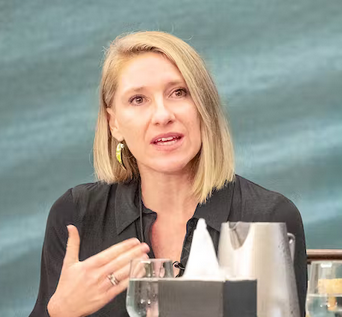
Fields of Research (FoR)
Forensic psychology, Decision making, Forensic science and management, Forensic Psychology, Cognitive Science, Decision MakingSEO tags
Biography
ABOUT ME
Biography
I am a Professor in the School of Psychology. My research aims to better understand the development of expertise, processes of evidence evaluation in criminal trials, and to improve the communication between experts and lay decision-makers in forensic settings.
Education
- PhD in Forensic Psychology, The University of New South Wales, Sydney 2008
- Master of Psychology (Forensic), The University of New South Wales, Sydney...view more
ABOUT ME
Biography
I am a Professor in the School of Psychology. My research aims to better understand the development of expertise, processes of evidence evaluation in criminal trials, and to improve the communication between experts and lay decision-makers in forensic settings.
Education
- PhD in Forensic Psychology, The University of New South Wales, Sydney 2008
- Master of Psychology (Forensic), The University of New South Wales, Sydney 2008
- BA(hons), majoring in Psychology and History, The University of Sydney, 2004
RESEARCH
Research Goals
- To understand lay interpretations of complex statistical and probabilistic evidence presented in criminal trials
- To examine the development of expertise
- To develop models for evaluating expert evidence
- To improve the quality of forensic science expert evaluative opinions
- To facilitate clear communication between experts and lay decision-makers
Research in Detail
My collaborators and I use online crowd sourcing platforms and electronic questionnaires to examine the decision-making processes of large international samples of lay decision-makers.We use crime scenarios based on actual case facts, and expert evidence derived from real forensic technologies, to assess the impact of evidence and evidence presentation characteristics on belief-updating. We collaborate with legal practitioners and academics, law enforcement operatives and organisations, psychologists, statisticians and forensic scientists in order to ensure the validity of our experimental approach and maximise the practical implications of our work.
Research Grants
- ARC Discovery Project (DP220102412) 2022-2024: Misinformation: Evidence evaluation in an alternate fact reality.
- ARC Linkage Project (LP160100008) 2016-2019: Improving the communication of forensic science evidence to courts.
- ARC Discovery Early Career Resercher Award (DE140100183) 2014-2016: Unravelling the golden thread: Presumption of innocence, fair trial, and lay belief change.
- NH&MRC Project Grant (APP1021862) 2012-2015: Reducing smoking in socioeconomically disadvantaged groups: A trial of a financial counselling intervention with NRT.
Supervision Opportunities/Areas
I am keen to talk to potential PhD students who are interested in working on projects relating to the validity of forensic science evidence, lay comprehension of scientific evidence, the development and evaluation of expertise, or other aspects of the intersection between psychology and evidence.
Advice for prospective students:
Working in my lab offers lots of opportunities to make discoveries with implications for professional practice in the criminal justice system. The 2009 NAS report has opened the door for cognitive psychologists to contribute to the refinement of criminal justice systems around the world by using their experimental skills to better understand human expert performance and lay decision-making. By deciding to work in the area you could find yourself generating the kind of knowledge that is currently being sought and relied upon by legal academics, law practitioners, forensic scientists and law enforcement agencies. You can also contribute more broadly to theories of decision-making under uncertainty, persuasion, and belief-updating. Our vibrant lab culture involves PhD, Masters and Honours students, academics, law students and research assistants. We meet weekly to talk about projects and ideas, to discuss topics in the media and literature, as well as emerging research questions. Everyone works together to share their knowledge and experience and to make sure you are always supported in your work.
If you are a PhD or Masters student and this area sounds right for you, do a little bit of reading to test the waters and come to me with your thoughts, plans and questions. It is best if you take ownership of your research topic from the start because it is going to be a big part of your life once you get underway. The NAS report is a good place to start with your reading. Ultimately we will work together to refine your idea to make sure that it will be an appropriate project for you to focus on. Honours students, you don't need to have firm plans of your own, but some preliminary reading will definitely help. Otherwise I have a list of studies that will work if you don't have a topic in mind.
Overall it is important to do your homework before you choose your research supervisor. So give yourself the best chance for success, read about the work we do, send me an email and talk to students to find out what it is like to be in the lab. We're all happy to help you get the information you need to make the best decision you can.
TEACHING & OUTREACH
Courses I teach
PSYC1027: Forensic Psychology: Crime, Courts and Corrections
PSYC3301: Psychology & Law
PSYC4103: Psychology 4B
PSYC7402: Applications of Forensic Psychology (co-ordinator)
PSYC7403: Experimental Psychology & Law
Professional affiliations and service positions
I am a member of the Australian Psychology Society and the College of Forensic Psychologists. I am an endorsed Forensic Psychologist, and am approved to supervise Forensic Psychology registras.I am also a member of the Australian Academy of Forensic Sciences.
Location
University of New South Wales
Sydney NSW 2052
Mathews Building
Room 1007